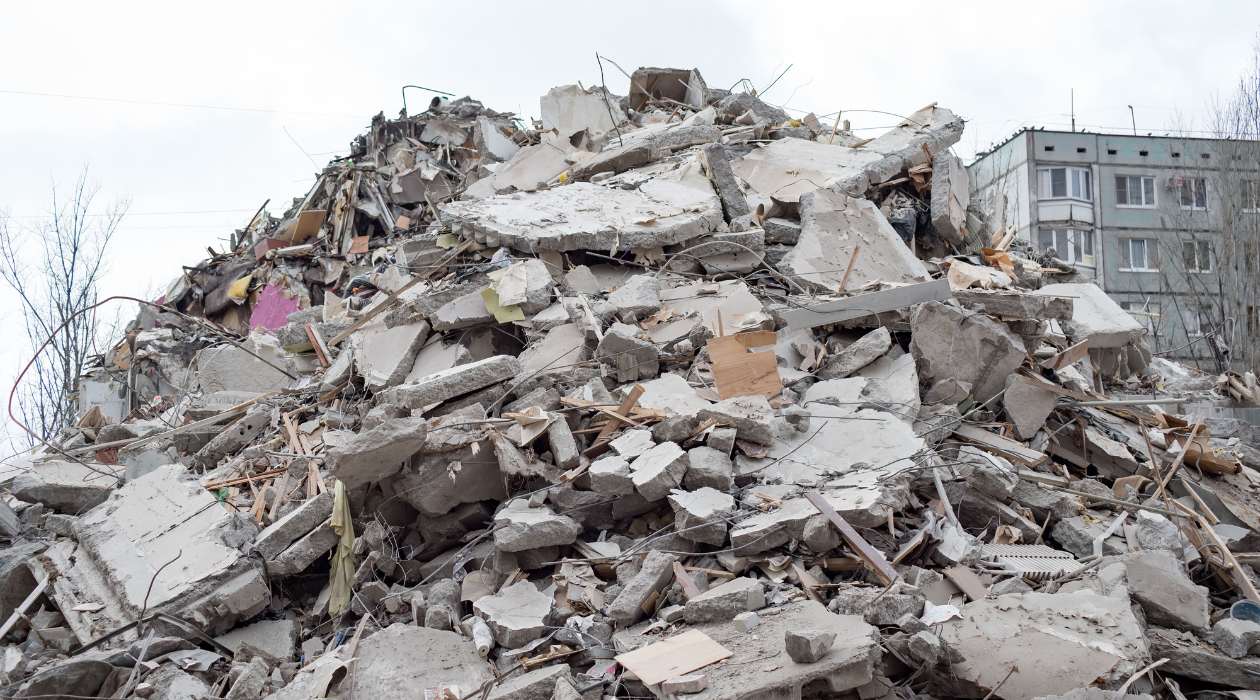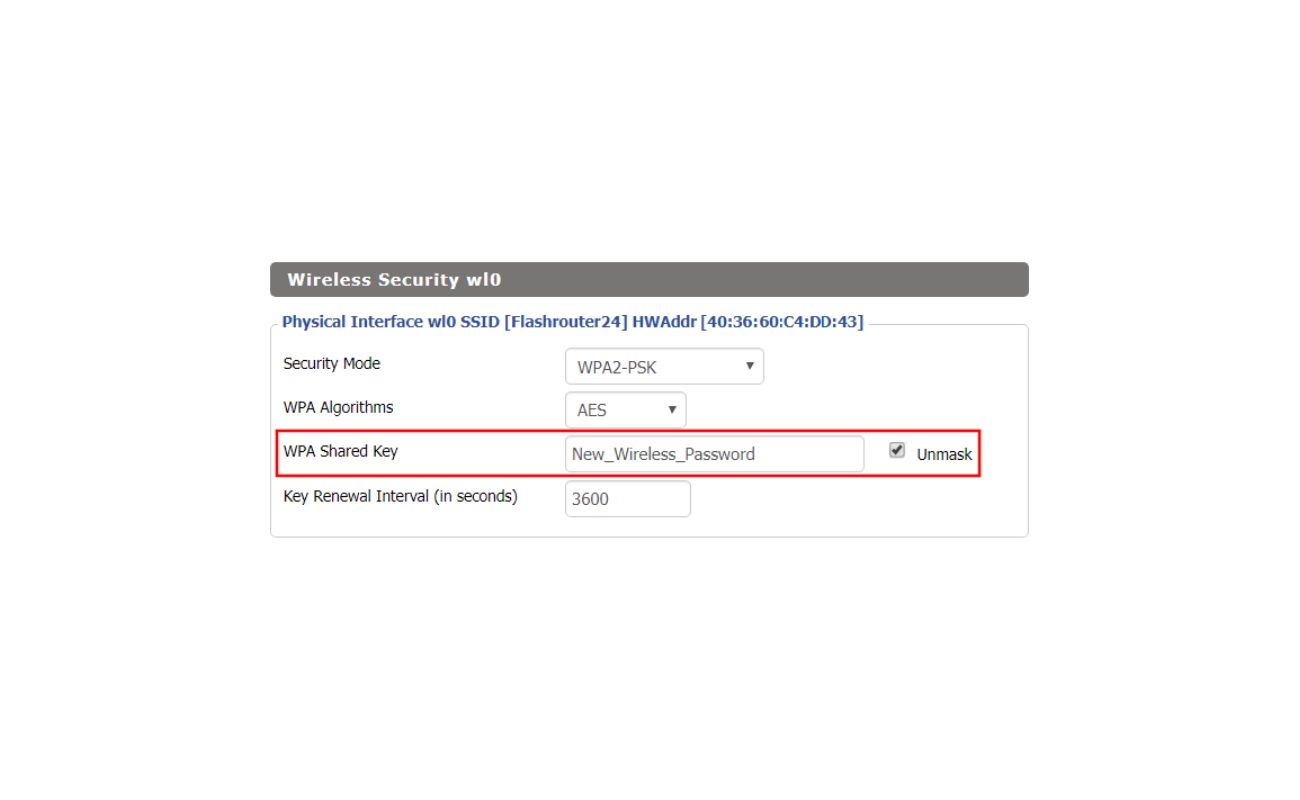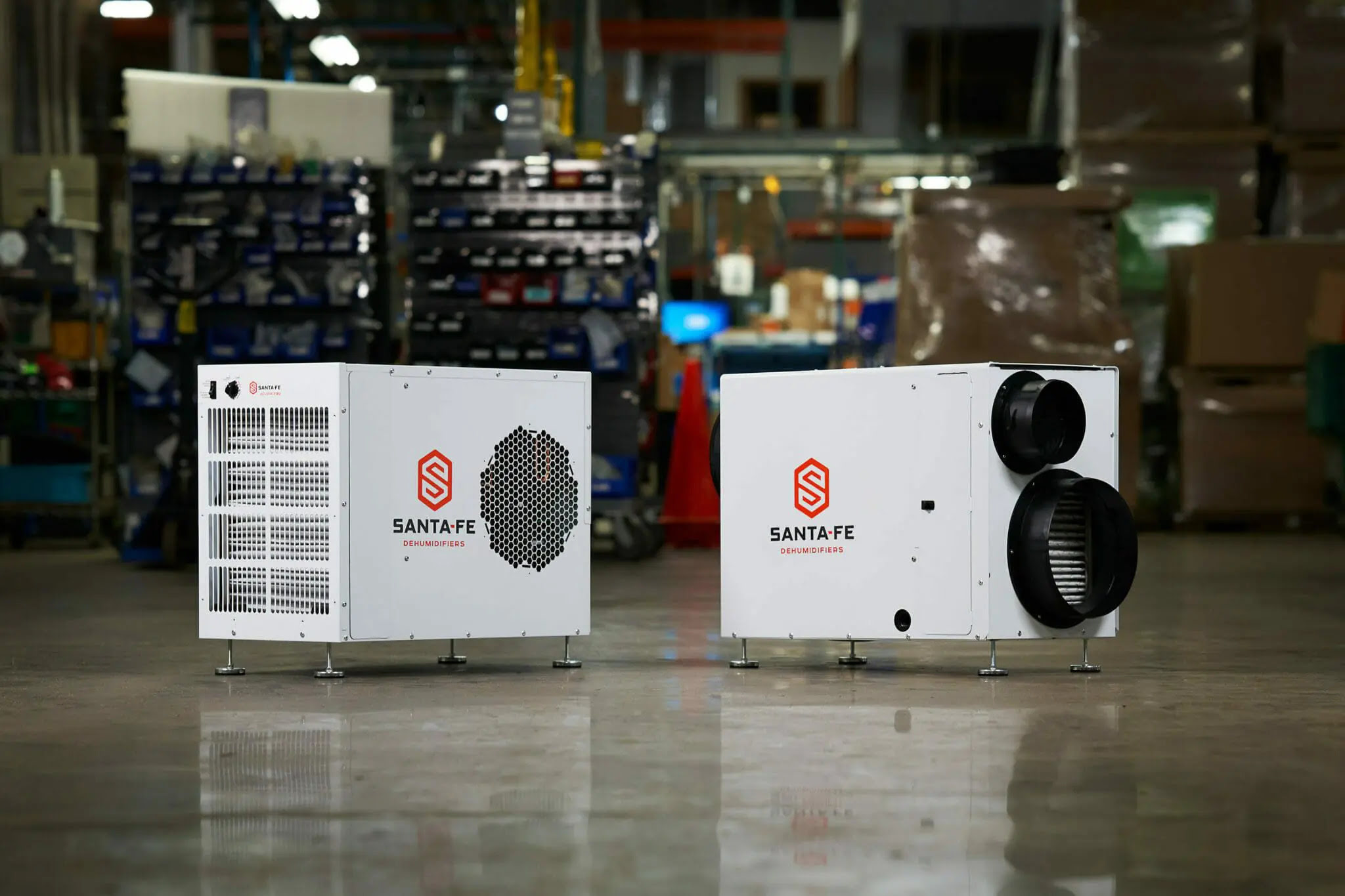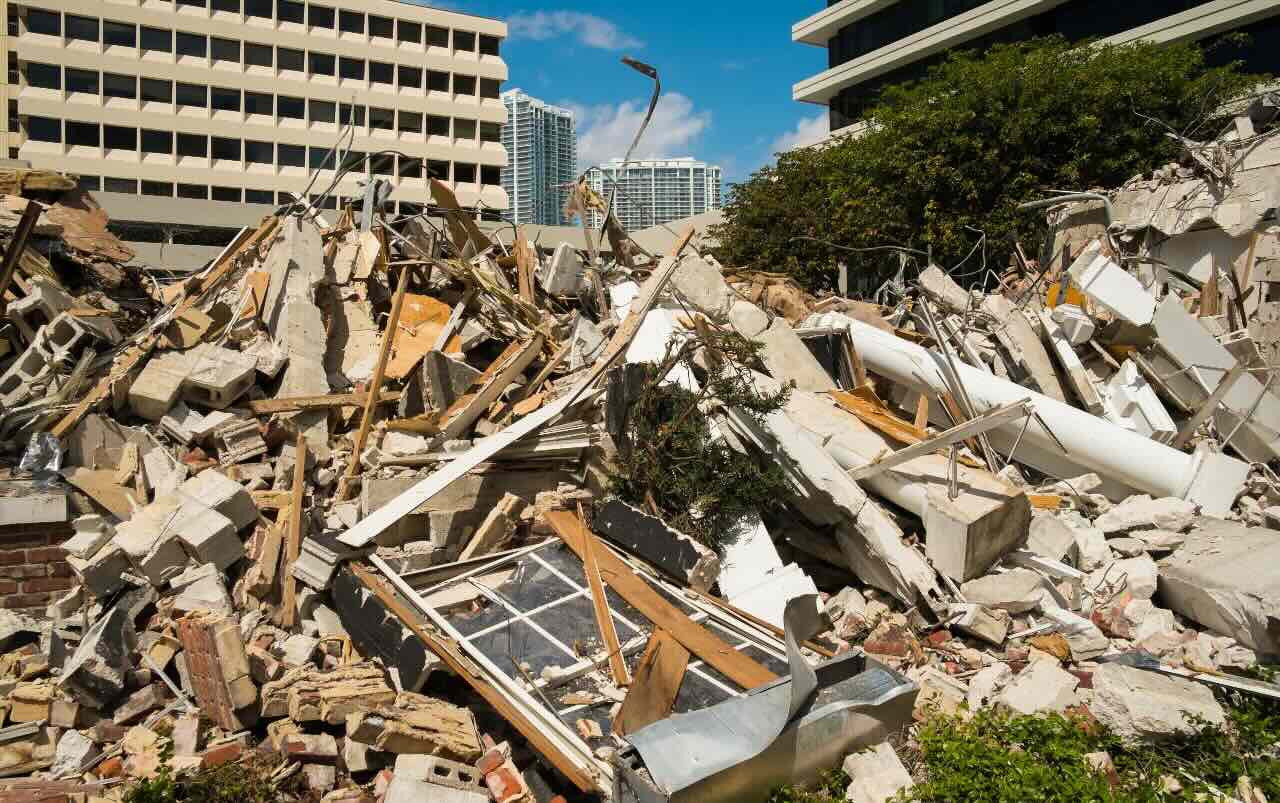Home>diy>Building & Construction>Where I Can Throw My Construction Waste


Building & Construction
Where I Can Throw My Construction Waste
Modified: December 7, 2023
Looking for a convenient solution to dispose of your construction waste? Discover where you can safely and responsibly get rid of your building-construction debris.
(Many of the links in this article redirect to a specific reviewed product. Your purchase of these products through affiliate links helps to generate commission for Storables.com, at no extra cost. Learn more)
Introduction
Construction projects are essential for building the world around us. From sprawling skyscrapers to humble residential homes, the construction industry shapes our living spaces and creates the infrastructure we rely on. However, with construction comes waste.
Construction waste refers to any refuse generated during the construction, renovation, or demolition of a structure. This waste can range from debris like concrete, bricks, and lumber to hazardous materials such as asbestos and lead. Proper disposal of construction waste is essential not only for environmental sustainability but also for ensuring the safety and well-being of workers and the general public.
In this article, we will delve into the world of construction waste and explore the various methods of disposal. Whether you’re a DIY enthusiast tackling a home renovation project or a professional contractor managing large-scale construction, understanding how to properly dispose of construction waste is crucial. Let’s dive in!
Key Takeaways:
- Proper disposal of construction waste is crucial for environmental sustainability, worker safety, and legal compliance. Understanding regulations, finding authorized disposal facilities, and recycling materials are key steps in responsible waste management.
- Embracing recycling, donation, and professional waste management services can minimize the environmental impact of construction projects while promoting sustainability and resource conservation. Prioritizing responsible waste management enhances project success and reputation.
Read more: Where Can I Dump Landscaping Waste
Understanding Construction Waste
Construction waste encompasses a wide range of materials that are generated during construction, renovation, and demolition activities. These materials can include:
- Concrete
- Bricks
- Lumber
- Plumbing fixtures
- Electrical wiring
- Glass
- Drywall
- Roofing materials
- Paints and coatings
- Asphalt
Construction waste can also consist of hazardous materials such as asbestos, lead, and chemical substances. It is important to identify and separate hazardous waste from non-hazardous waste to ensure proper disposal guidelines are followed.
Construction waste can be further categorized into two types:
- Building materials waste: These materials are unused or leftover components from the construction process, including excess lumber, concrete blocks, and roofing materials.
- Demolition waste: This refers to materials generated from the demolition or removal of existing structures, such as walls, floors, and foundations.
Understanding the types of construction waste can help you develop effective strategies for disposal and minimize the environmental impact.
Construction waste not only occupies valuable space but can also contribute to pollution and environmental degradation if not handled properly. Additionally, improper disposal of construction waste can pose health and safety risks to workers and the general public. Therefore, it is crucial to implement appropriate waste management practices to mitigate these issues.
The Importance of Proper Disposal
Proper disposal of construction waste is of utmost importance for several reasons. Let’s explore the key reasons why it is crucial to handle construction waste responsibly:
1. Environmental Impact: Construction waste, if not properly managed, can have a significant environmental impact. Landfills quickly fill up with waste, occupying valuable land and contributing to soil, air, and water pollution. By ensuring proper disposal and recycling of construction waste, we can reduce the strain on landfills and preserve natural resources.
2. Health and Safety: Construction waste can include hazardous materials such as asbestos, lead, and other harmful substances. Improper handling or disposal of these materials can pose serious health risks to workers, residents, and the environment. By following proper disposal procedures, we can protect the health and safety of those involved in the construction process and the communities affected by it.
3. Compliance with Regulations: Governments and regulatory bodies have established guidelines and regulations to govern the proper disposal of construction waste. Failing to comply with these regulations can result in legal consequences, including fines and penalties. By adhering to the prescribed methods of disposal, construction businesses can maintain compliance and avoid unnecessary legal issues.
4. Reputation and Public Image: Companies that prioritize responsible waste management practices demonstrate their commitment to sustainability and environmental stewardship. This can enhance their reputation and public image, attracting environmentally conscious clients and stakeholders. Conversely, companies that neglect proper waste disposal may face reputation damage and lose potential business opportunities.
5. Resource Conservation and Cost Savings: Proper disposal practices often involve recycling and reusing construction waste materials. By implementing recycling programs, companies can conserve valuable resources and reduce the need for new raw materials. Moreover, recycling and reusing waste materials can lead to cost savings on disposal fees and purchasing new materials, contributing to overall project cost efficiency.
In summary, proper disposal of construction waste is essential to minimize environmental impact, protect public health, comply with regulations, maintain a positive reputation, and conserve resources. By adopting responsible waste management practices, we can contribute to a more sustainable and resilient construction industry.
Legal Regulations for Construction Waste Disposal
Construction waste disposal is subject to various legal regulations to ensure the proper handling and management of waste materials. It is crucial for construction companies and individuals involved in construction projects to be aware of and comply with these regulations. Let’s explore some key legal regulations related to construction waste disposal:
1. Building Codes and Permits: Construction projects are regulated by building codes and permits issued by local authorities. These codes often include provisions for waste management and disposal. They specify the types of waste that are permitted, the required methods of disposal, and any necessary certifications or permits to handle hazardous materials.
2. Environmental Protection Agency (EPA) Regulations: The EPA enforces federal regulations related to waste disposal, including those specific to the construction industry. The EPA sets guidelines for the handling, transportation, and disposal of both hazardous and non-hazardous construction waste. It is essential to consult the EPA regulations to ensure compliance and avoid legal repercussions.
3. Occupational Safety and Health Administration (OSHA) Standards: OSHA sets and enforces occupational safety and health standards to protect workers from hazards in the workplace, including those associated with construction waste. Construction companies must adhere to OSHA standards to provide a safe working environment for their employees, including proper waste disposal procedures.
4. Local Waste Management Regulations: Local governments may have specific regulations and ordinances related to waste management and disposal. These regulations can vary from one municipality to another, so it is necessary to familiarize yourself with the local rules. They may include guidelines for waste sorting, recycling requirements, and designated disposal facilities.
5. Hazardous Waste Regulations: Hazardous construction waste, such as asbestos, lead-based paint, and chemicals, is subject to specific regulations. These regulations often require specialized handling, transportation, and disposal methods. It is essential to engage licensed professionals and follow the prescribed procedures to manage and dispose of hazardous waste safely.
6. Waste Tracking and Documentation: In many jurisdictions, construction companies are required to track and document the disposal of waste materials. This documentation may include records of waste quantities, disposal methods used, and receipts from authorized disposal facilities. Proper record-keeping ensures transparency and provides evidence of compliance with regulations if required.
It is crucial to consult with legal experts and waste management professionals to understand the specific regulations and requirements in your area. By complying with the legal regulations for construction waste disposal, you can avoid legal penalties, protect the environment, and ensure the safety of workers and the public.
Finding Authorized Disposal Facilities
Proper disposal of construction waste involves utilizing authorized disposal facilities that meet the required regulations and standards. Finding these facilities can sometimes be a challenge, especially if you’re unfamiliar with the area or new to the construction industry. Here are some tips for finding authorized disposal facilities:
1. Research Local Regulations: Familiarize yourself with the local regulations regarding construction waste disposal. Understand the specific requirements for your area, including the types of waste that can be accepted, the necessary permits or certifications, and any recycling or sorting requirements. This knowledge will help narrow down your search for authorized facilities.
2. Consult Waste Management Professionals: Waste management professionals, such as environmental consultants or waste disposal companies, have in-depth knowledge of the local waste management infrastructure. They can provide valuable guidance and recommendations on authorized disposal facilities in your area. These professionals can also help with waste characterization and planning, ensuring compliance with regulations.
3. Check Government Databases: Many government organizations maintain databases or directories of authorized disposal facilities. These databases provide information about the facilities’ locations, the types of waste they accept, and their compliance with regulations. Check with your local environmental or waste management agency to access these databases and find suitable disposal facilities.
4. Seek Recommendations: Reach out to other professionals in the construction industry, including contractors, builders, or waste management companies. They may have experience with authorized disposal facilities and can recommend reliable options. Networking with industry peers or joining construction-related associations and forums can also provide useful insights into local disposal facilities.
5. Conduct Online Research: Utilize online resources to search for authorized disposal facilities in your area. Search engines, directories, and review websites can help you find facilities that meet your specific waste disposal needs. Consider factors such as proximity to your construction site, permitted waste types, pricing, and customer reviews when evaluating potential disposal facilities.
6. Contact Local Government Agencies: Local government agencies responsible for waste management often have information on authorized disposal facilities. Reach out to these agencies to inquire about the available options, any permits or certifications required, and any additional guidelines or recommendations they can provide. They can also provide information on recycling centers or specialized facilities for hazardous materials.
Remember, it is essential to verify the authorization and compliance of any disposal facility before using their services. Confirm that the facility has the necessary permits, licenses, and certifications to handle and dispose of construction waste. By utilizing authorized disposal facilities, you can ensure responsible waste management and contribute to a more sustainable construction industry.
Check with your local waste management facility for guidelines on disposing of construction waste. They may have specific drop-off locations or requirements for handling and sorting materials.
Read more: Where Can I Sell My Coffee Machine
Renting a Dumpster for Construction Waste
When managing construction waste, one popular and convenient option is renting a dumpster. Dumpsters provide a practical solution for disposing of various types of construction waste, allowing for efficient collection, containment, and later disposal. Here’s what you need to know about renting a dumpster for construction waste:
1. Determine the Right Size: Assess the amount and type of construction waste you anticipate generating to determine the appropriate dumpster size. Dumpsters come in various sizes, ranging from small 10-yard containers to larger 40-yard containers. Renting a dumpster that is too small may lead to overflow and additional charges, while renting one that is too large could be a waste of resources. Consider the scale of your project, the volume of waste anticipated, and any space limitations on your construction site.
2. Contact Local Dumpster Rental Companies: Research and contact local dumpster rental companies in your area. Compare prices, availability, and options offered by different providers. Inquire about their rental terms, including the rental period, delivery and pickup schedules, and any additional fees, such as overweight charges or special waste disposal fees. Ensure that the rental company is licensed and reputable.
3. Discuss Waste Management Requirements: Communicate your specific waste management needs to the rental company. Provide details about the types of materials you will be disposing of, including any hazardous waste. Some rental companies may have restrictions on certain types of waste, so it’s important to clarify these details upfront. Additionally, discuss any recycling requirements or preferences you have, as some rental companies offer recycling services for construction waste.
4. Arrange Delivery and Pickup: Once you have selected a rental company, schedule the delivery of the dumpster to your construction site. Ensure that there is adequate space for the dumpster and any necessary permits for placing it on public property. Coordinate the pickup schedule to align with the progress of your project and the anticipated completion date. If you require longer rental periods, discuss the possibility of extensions with the rental company.
5. Follow Proper Usage Guidelines: Make sure to adhere to the rental company’s guidelines for dumpster usage. Avoid overfilling the dumpster as it may be hazardous during transportation and could result in additional charges. Separate and sort waste as required, ensuring that any hazardous materials are contained appropriately. Educate your construction team on proper waste disposal practices to maintain a safe and efficient working environment.
6. Consider Environmental Impact: While renting a dumpster is a convenient waste management solution, it’s essential to consider the environmental impact. Whenever possible, prioritize recycling and proper waste segregation. Minimize the amount of waste going into the dumpster by salvaging and reusing materials on-site. Opt for rental companies that offer recycling services or who work with recycling facilities to ensure that the waste is disposed of responsibly and sustainably.
Renting a dumpster for construction waste provides a practical and time-efficient way to manage waste on your construction site. By carefully selecting the right size, working with reputable rental companies, and following proper usage guidelines, you can ensure efficient waste disposal while minimizing the environmental impact of your construction project.
Recycling Construction Waste
Recycling construction waste is a sustainable practice that helps reduce the environmental impact of construction projects and conserves valuable resources. By diverting waste from landfills and reusing materials, recycling construction waste can contribute to a more sustainable construction industry. Here are some key points to consider when it comes to recycling construction waste:
1. Sort and Separate Waste: Proper waste sorting is crucial for effective recycling. Categorize construction waste into different groups such as wood, metal, concrete, plastics, and cardboard. Separate hazardous materials, like asbestos or lead-based materials, for specialized handling and disposal. Clearly labeled bins or designated areas can facilitate easy waste segregation on your construction site.
2. Identify Local Recycling Facilities: Research and identify local recycling facilities that accept construction waste. These facilities may specialize in recycling specific materials or offer comprehensive recycling services. Check if they have the necessary equipment and processes to handle and process the types of construction waste you intend to recycle. Contact the facilities to understand their acceptance criteria, drop-off procedures, and any associated fees.
3. Consult Recycling Guidelines: Different materials have unique recycling guidelines. Consult resources, such as recycling guides provided by local governments or waste management agencies, to understand how to properly recycle specific construction waste materials. These guidelines will provide instructions on proper preparation, packaging, and transportation of recyclables to ensure they meet recycling facility requirements.
4. Engage Recycling Contractors: If managing the recycling process proves challenging, consider engaging recycling contractors or waste management companies that specialize in construction waste recycling. These professionals have the expertise and equipment to handle the sorting, transportation, and processing of various construction waste materials. They can help streamline your recycling efforts and ensure maximum recyclable recovery.
5. Promote Reuse and Salvage: Before considering recycling, explore opportunities for reusing or salvaging materials on your construction site. Salvaging items like lumber, fixtures, cabinets, or windows can reduce the need for new materials and minimize waste generation. By incorporating salvage and reuse practices into your construction project, you can reduce the overall environmental footprint and potentially save costs.
6. Educate and Involve Your Team: Educate your construction team on the importance of recycling and the proper procedures for waste segregation. Promote a culture of waste reduction and recycling by providing training, clear signage, and regular communication about your recycling initiatives. Encourage team members to actively participate in sorting and recycling efforts to maximize recycling rates.
7. Monitor and Evaluate: Continuously monitor and evaluate your recycling efforts to track progress and identify areas for improvement. Keep records of the amount and types of waste recycled to assess the effectiveness of your recycling program. Regular reviews will help you identify any challenges or bottlenecks and make adjustments as needed.
Recycling construction waste not only diverts materials from landfills but also reduces the demand for new resources and energy-intensive manufacturing processes. By adopting recycling practices, you can contribute to a more sustainable construction industry and play a part in building a greener future.
Donating Reusable Construction Materials
Donating reusable construction materials is a sustainable and socially responsible practice that benefits both the environment and the community. Instead of discarding materials that are still in good condition, donating them to organizations or individuals in need ensures that they can be repurposed and used again. Here’s what you need to know about donating reusable construction materials:
1. Identify Reusable Materials: Before beginning your construction project, assess the materials you will no longer need or can salvage. This can include items such as doors, windows, lumber, plumbing fixtures, electrical components, and appliances. Identify materials that are in good condition and can be safely reused without compromising quality or safety standards.
2. Research Donation Opportunities: Research local non-profit organizations, charities, community centers, or housing programs that accept donations of construction materials. Contact these organizations to understand their specific needs, acceptance criteria, and how to arrange the donation. Some organizations may have restrictions on the types or quantities of materials they can accept.
3. Coordinate Pickup or Drop-Off: Coordinate with the chosen organization to arrange for the pickup or drop-off of the donated materials. Some organizations may offer pickup services depending on the size and quantity of the materials. If drop-off is required, ensure that you deliver the materials to the designated location at a mutually agreed upon time.
4. Ensure Proper Handling and Safety: When donating construction materials, it is important to handle and package them safely to prevent any damage or risk of injury during transportation. Ensure that materials are securely packaged, labeled if necessary, and protected from the elements. This will help ensure the donation reaches its destination in good condition.
5. Document the Donation: Keep a record of the donated materials, including photographs and descriptions. This documentation can serve as proof of your donation for tax purposes or as evidence of your sustainable practices. Some organizations may also provide donation receipts or certificates that you can use for tax deductions, so be sure to inquire about this possibility.
6. Promote Community Engagement: Share your donation efforts with your local community or through social media channels. By promoting the importance of donating reusable construction materials, you can inspire others to follow suit. Encourage fellow contractors, builders, and homeowners to consider donating rather than discarding materials during their own construction projects.
7. Maintain Good Communication: Maintain open lines of communication with the organization you donated to. Stay updated on how the materials are being used and the impact they are making. This feedback will not only help you track the positive outcome of your donation but also provide insights into other potential donation opportunities in the future.
Donating reusable construction materials not only reduces waste but also supports those in need. It helps decrease the demand for new materials, conserves resources, and promotes a circular economy. By participating in donation initiatives, you contribute to a more sustainable construction industry and make a positive difference in your community.
Hiring a Professional Waste Management Company
When it comes to managing construction waste efficiently and responsibly, hiring a professional waste management company can be an excellent solution. These companies specialize in waste disposal and recycling services, helping construction projects streamline their waste management processes. Here are some key points to consider when hiring a professional waste management company:
1. Expertise and Experience: Waste management companies have the expertise and experience to handle various types of construction waste. They are knowledgeable about the regulations and guidelines governing waste disposal and recycling. By hiring professionals, you can ensure that waste is managed safely and in compliance with the necessary legal requirements.
2. Comprehensive Waste Management Solutions: Waste management companies offer comprehensive solutions tailored to your specific project needs. They can handle waste collection, transportation, sorting, recycling, and disposal. These companies have the necessary equipment and facilities to manage different types of construction waste efficiently.
3. Waste Characterization and Segregation: Waste management companies can assist in the proper characterization and segregation of construction waste. They have the expertise to identify hazardous materials and ensure their safe handling and disposal. By accurately sorting waste materials, these companies maximize the potential for recycling and minimize environmental impact.
4. Compliance with Regulations: Waste management companies are well-versed in local and federal regulations regarding waste disposal. By hiring professionals, you can be confident that your waste management practices align with these regulations. This helps mitigate the risk of legal penalties and ensures responsible waste management throughout your construction project.
5. Efficient Resource Allocation: Waste management companies help optimize resource allocation by handling waste disposal and recycling on your behalf. This frees up your time and resources, allowing you to focus on core construction activities. By relying on professionals, you can ensure that waste management is handled efficiently and effectively.
6. Environmental Sustainability: Waste management companies prioritize environmental sustainability by promoting recycling and reducing landfill waste. They have established networks with recycling facilities and can maximize the amount of waste that is recycled, thus minimizing the environmental impact of your construction project. This supports your commitment to sustainable practices.
7. Cost-Effectiveness: While hiring a waste management company may involve upfront costs, it can be cost-effective in the long run. These companies have established relationships with recycling facilities, enabling them to negotiate better pricing and disposal rates. Moreover, they can help you avoid potential fines and penalties due to non-compliance with waste management regulations.
8. Waste Tracking and Reporting: Waste management companies provide comprehensive tracking and reporting services. They can provide documentation of waste quantities, disposal methods, and recycling rates. This reporting is valuable for monitoring your waste management progress, assessing your environmental impact, and demonstrating your commitment to sustainability to stakeholders.
Hiring a professional waste management company removes the burden of waste management from your construction project while ensuring compliance with regulations and promoting environmental sustainability. By leveraging their expertise and resources, you can streamline your waste management processes and contribute to a greener construction industry.
Read more: Where Can I Buy Earthworms For My Garden
Conclusion
Managing construction waste responsibly is vital for the sustainability and success of any construction project. From understanding the types of waste generated to finding proper disposal facilities and exploring recycling and donation options, there are numerous ways to minimize the environmental impact and maximize the benefits of construction waste management.
Proper disposal of construction waste is not only a legal obligation but also an ethical responsibility. By following legal regulations and guidelines, construction companies can ensure compliance, protect the environment, and maintain a positive reputation. It is crucial to understand the specific regulations applicable to your area and consult with waste management experts to ensure proper waste handling throughout the project.
Recycling construction waste offers an opportunity to reduce landfill waste, conserve resources, and promote a circular economy. Through waste sorting, collaborating with recycling facilities, and encouraging reuse, construction companies can contribute to a more sustainable construction industry while potentially obtaining cost savings.
Additionally, donating reusable construction materials not only minimizes waste but also supports individuals and organizations in need. By engaging with local non-profit organizations, charities, or community centers, construction companies can ensure that materials in good condition find a second life instead of being discarded, thus making a positive social impact.
Hiring a professional waste management company can simplify the waste management process and improve efficiency. These experts bring their knowledge, experience, and resources to handle waste collection, segregation, recycling, and disposal, ensuring compliance with regulations and promoting environmental sustainability. By partnering with waste management professionals, construction companies can optimize resource allocation and achieve effective waste management throughout their projects.
In conclusion, by prioritizing proper construction waste management techniques such as recycling, donation, and engaging with waste management companies, the construction industry can significantly reduce its environmental footprint, promote sustainable practices, and contribute to a cleaner and greener future. Embracing responsible construction waste management not only benefits the environment but also enhances the reputation and success of construction projects.
Frequently Asked Questions about Where I Can Throw My Construction Waste
Was this page helpful?
At Storables.com, we guarantee accurate and reliable information. Our content, validated by Expert Board Contributors, is crafted following stringent Editorial Policies. We're committed to providing you with well-researched, expert-backed insights for all your informational needs.














0 thoughts on “Where I Can Throw My Construction Waste”